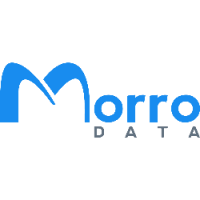Tackling the Top Common Data Management Challenges
Tackling the Top Common Data Management Challenges
In 2024, approximately 120 zettabytes of data will be generated. Within a corporate environment, inadequate data governance can trigger a range of problems, including inconsistencies in data interpretation, security vulnerabilities, operational failures, and failure to comply with regulations. In this blog post, we will examine two common data management challenges and propose practical solutions to mitigate them.
Challenge 1: Data Silo
Users often struggle to locate files amidst a sea of disorganized data. Poor folder structures, inconsistent naming conventions, and improper access controls contribute to this challenge. Without a clear organizational framework, valuable time is wasted searching for essential documents, leading to inefficiency and frustration. To mitigate this issue, organizations must prioritize the establishment of proper file organization practices. This includes implementing standardized folder structures, enforcing naming conventions, and setting appropriate access permissions. By centralizing data repositories and streamlining access control mechanisms, businesses can enhance productivity and ensure that critical information is readily accessible to authorized users.
Learn More: Breaking Down Data Silos in the Cloud: The Emergence of Multi-Cloud Solution
Challenge 2: Duplicate Files
Duplicate files pose another common data management headache when users create copies of documents instead of collaborating on a single version, or when users cannot find the original files due to the data silo issue and recreate a new file in the file system. This proliferation of duplicate files not only leads to confusion but also incurs increased storage costs. To combat this issue, organizations should implement robust version control systems or adopt real-time collaboration solutions. By providing users with a centralized platform for document or project collaboration and version tracking, businesses can minimize the creation of duplicate files and ensure that stakeholders are working on the latest iterations. Additionally, regular audits of file systems can help identify and eliminate existing duplicates, thereby optimizing storage resources and improving data integrity.
Challenge 3: Maintaining Data Security and Compliance for Organizations
Maintaining data security and compliance presents a significant challenge for organizations. Failure to adequately protect sensitive data can result in severe consequences, including legal penalties, reputational damage, and financial losses. Common issues in this area include inadequate encryption measures, weak access controls, and insufficient data backup procedures. To address these challenges, organizations must prioritize the implementation of robust security measures, including encryption protocols, access control mechanisms, and regular security audits. Additionally, compliance with industry-specific regulations such as GDPR and HIPAA requires ongoing vigilance and adherence to strict data protection standards.
Learn more: Data Governance in the Cloud: Best Practices and Considerations
Efficient and Collaborative Cloud File Storage with Cloud NAS
Morro Data CloudNAS offers cloud-based file storage and global file services that effectively address these challenges. With its centralized view and cloud-based storage, CloudNAS breaks down data silos by consolidating data from multiple storage locations into a centralized, cloud-based file server. This ensures that all business data is accessible from anywhere with internet access, eliminating the need for storing data in multiple locations. Furthermore, the solution provides advanced features for sharing and collaboration, including version control, file locking, and remote access. This facilitates real-time access and collaboration on data, fostering cross-functional collaboration and breaking down silos within teams and departments. Data security is a significant focus for CloudNAS, providing robust protection with features like encryption during data transmission and storage, two-factor authentication, access controls, and file versioning for quick recovery. It also supports authentication methods like Active Directory and Azure AD to ensure authorized personnel have secure access to data.
